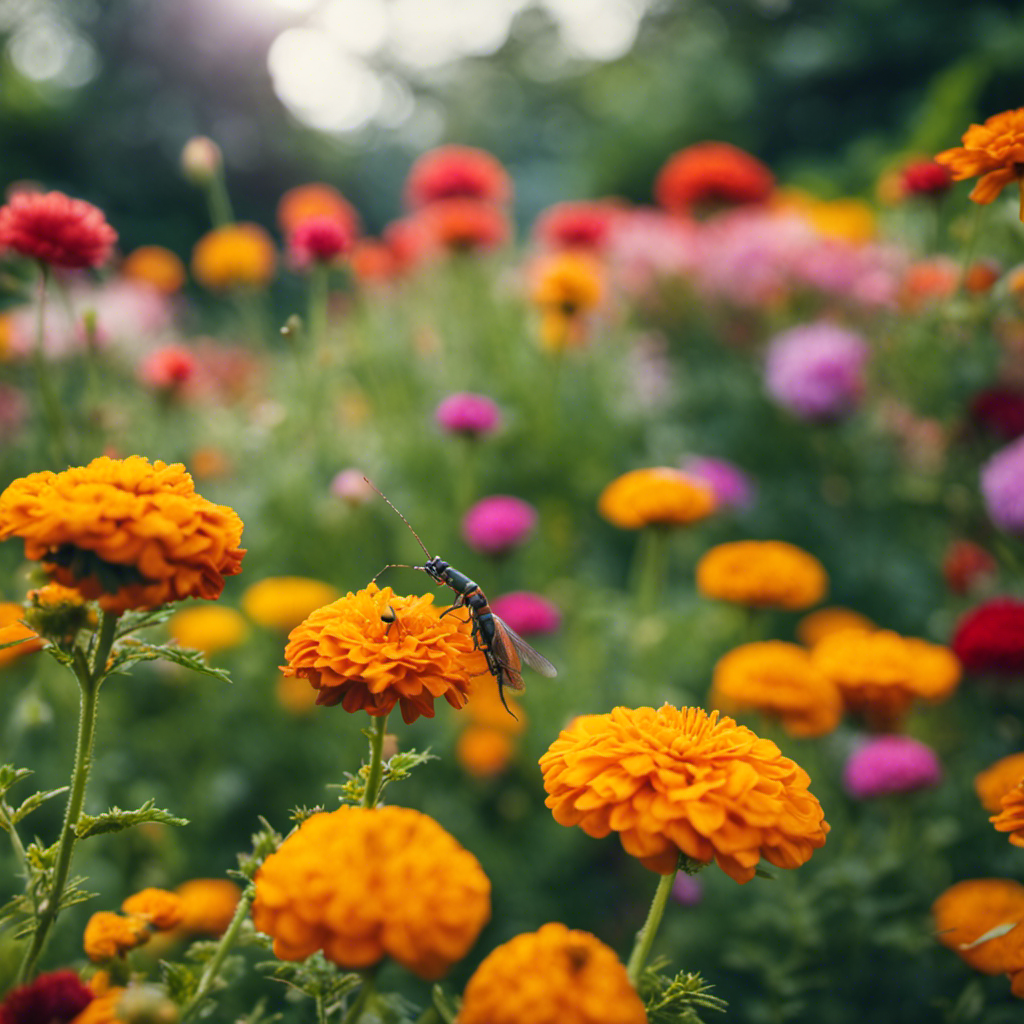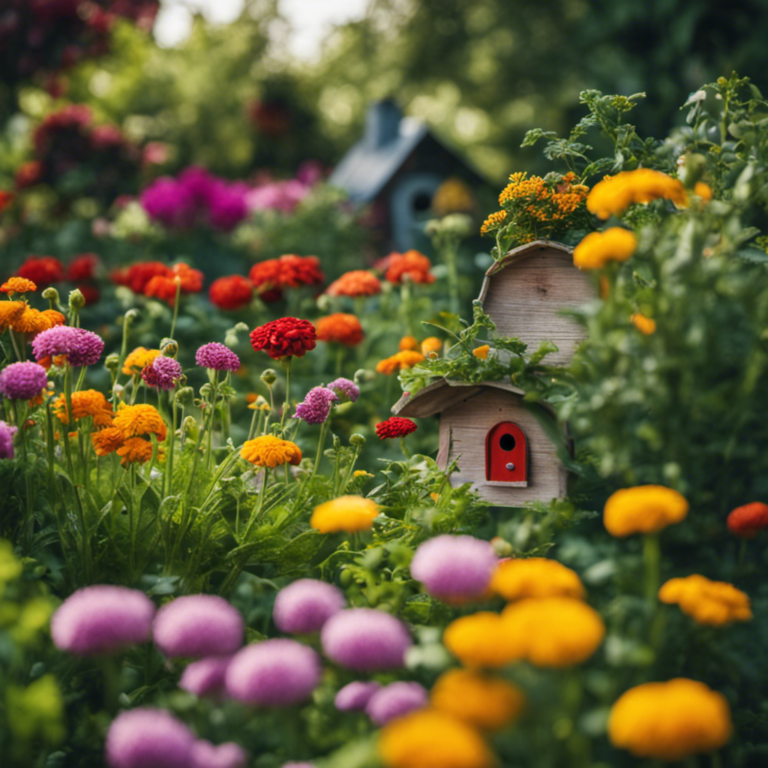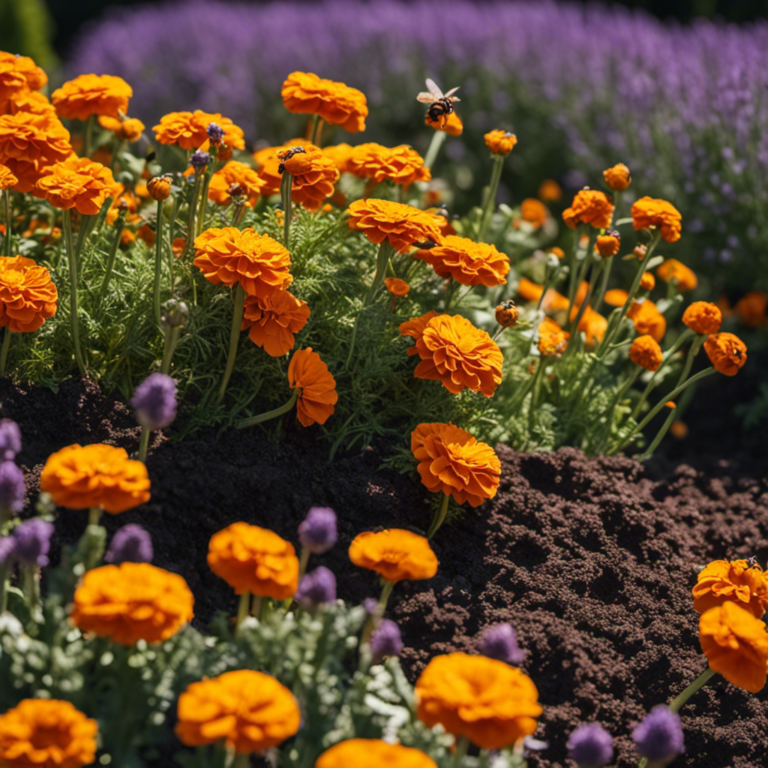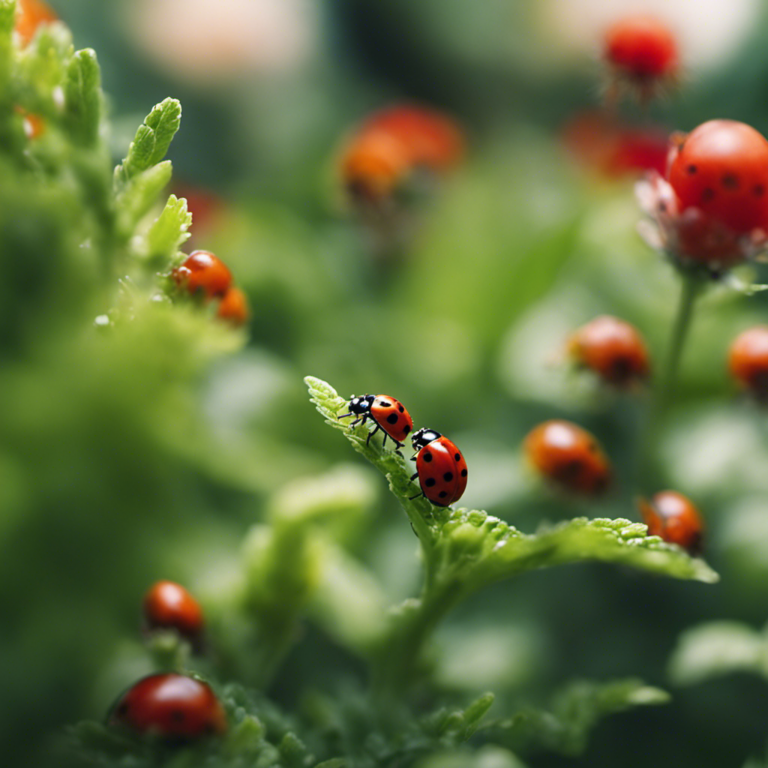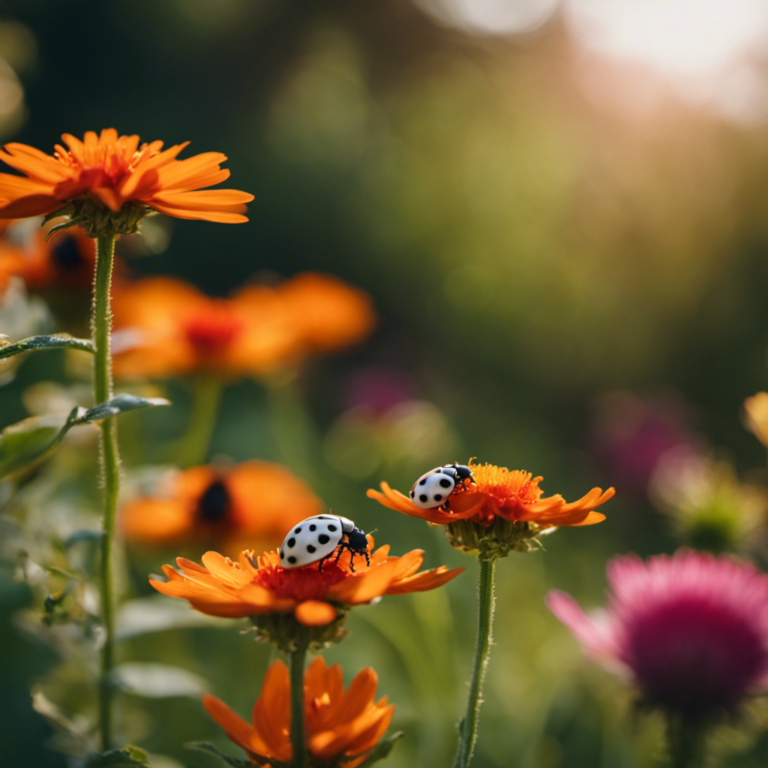Is your garden plagued by pests? Don’t worry, because we have the perfect solutions to naturally banish them.
In this article, we will explore DIY pest repellents and organic methods to keep your garden free from unwanted invaders. With these homemade remedies and effective pest management techniques, you can protect your herb garden without resorting to harmful chemicals.
It’s time to reclaim your garden and enjoy the bountiful rewards of nature.
Key Takeaways
In the vast world of nature, where pests can cause harm to herb plants, we have discovered effective natural methods to get rid of them. By using do-it-yourself pest repellents and environmentally-friendly pest control techniques, we can protect our organic gardens and ensure the health and vitality of our precious herb plants. With organic pest management and homemade remedies, we can overcome the challenges that nature presents, creating a peaceful sanctuary for our botanical allies.
DIY Pest Repellents for Herbs

Protect your herbs from pests using homemade repellents. When taking care of your herb garden, using organic pest deterrents is a great way to keep pesky insects away.
These homemade repellents aren’t only effective but also safe for you, your family, and the environment. One popular option is making a garlic spray. Simply blend a few cloves of garlic with water and strain the mixture into a spray bottle. This strong-smelling mixture repels a variety of insects, including aphids and beetles.
Another natural deterrent is neem oil, which comes from the neem tree. Mix it with water and spray it onto your herbs to protect them from pests.
These organic pest repellents are affordable, easy to make, and will help you maintain a thriving herb garden.
Natural Pest Control Solutions for Organic Gardens
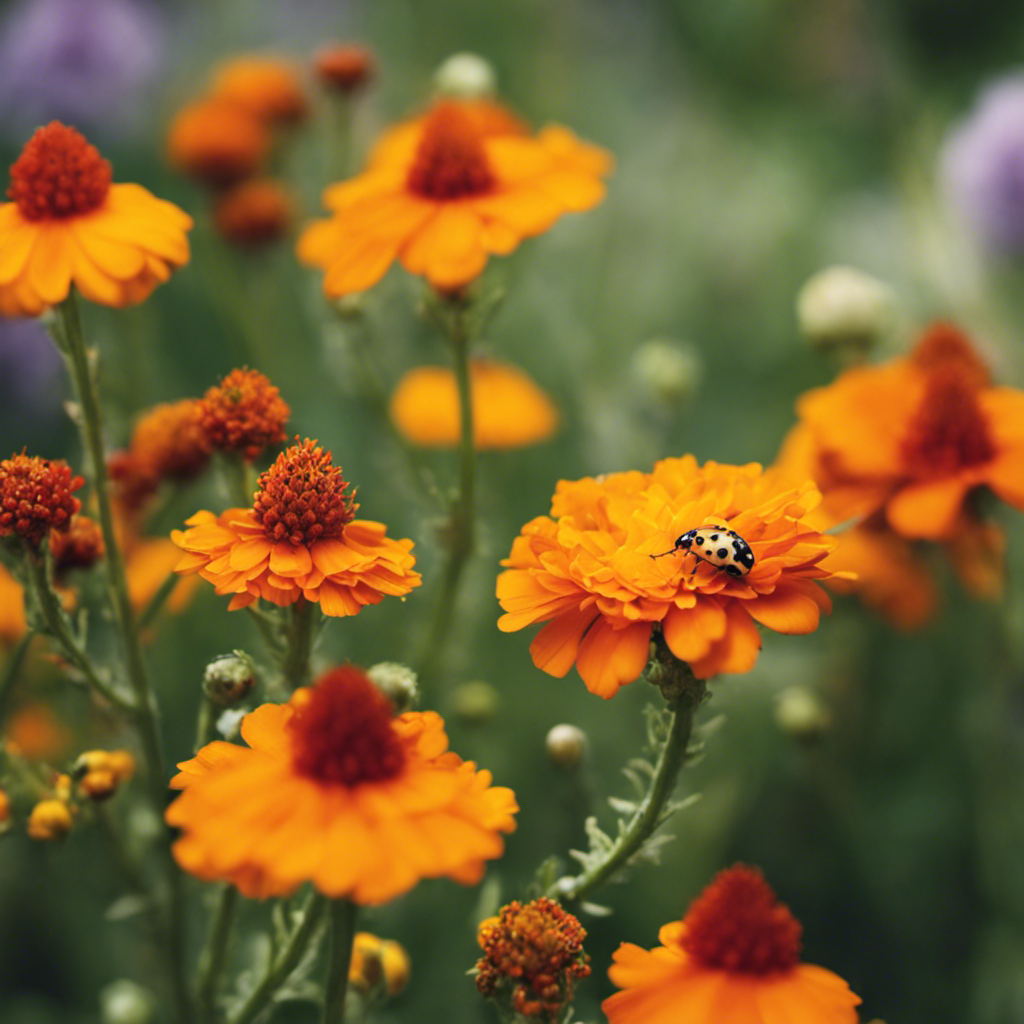
Protecting your organic garden from pests is essential for maintaining an eco-friendly and healthy environment for your plants. Incorporating natural pest control solutions not only helps in achieving this goal but also promotes the overall well-being of your garden.
Here are three effective strategies that you can adopt to control pests naturally:
-
Companion Planting: Planting specific crops strategically together can naturally repel pests. For instance, marigolds planted alongside your vegetables can deter harmful insects like aphids and nematodes while attracting beneficial insects like ladybugs.
-
Beneficial Insects: Encouraging the presence of beneficial insects such as ladybugs, lacewings, and praying mantises in your garden can help control pest populations. These natural predators feast on common garden pests like aphids, caterpillars, and mites.
-
Mulching and Crop Rotation: Applying mulch around your plants and practicing crop rotation can disrupt the life cycle of pests. Mulching helps suppress weed growth, reducing competition for resources, while crop rotation prevents the buildup of pests that target specific plants.
Homemade Remedies for Herb Garden Pests

Combat herb garden pests with homemade remedies.
Protecting your herb garden from pests doesn’t have to involve chemical pesticides. Instead, you can easily make safe alternatives at home.
One effective method is companion planting, which means strategically planting certain herbs and flowers together to deter pests. For example, planting basil alongside tomatoes can repel aphids and other harmful insects.
Another homemade remedy is a garlic spray. Crush several garlic cloves and mix them with water to create a potent mixture that repels pests like aphids, slugs, and snails.
Additionally, you can make a natural insecticidal soap by combining liquid soap and water. This solution can be sprayed directly on pests to control their population.
With these homemade remedies, you can protect your herb garden without using harmful chemicals.
Effective Organic Pest Management for Herbs
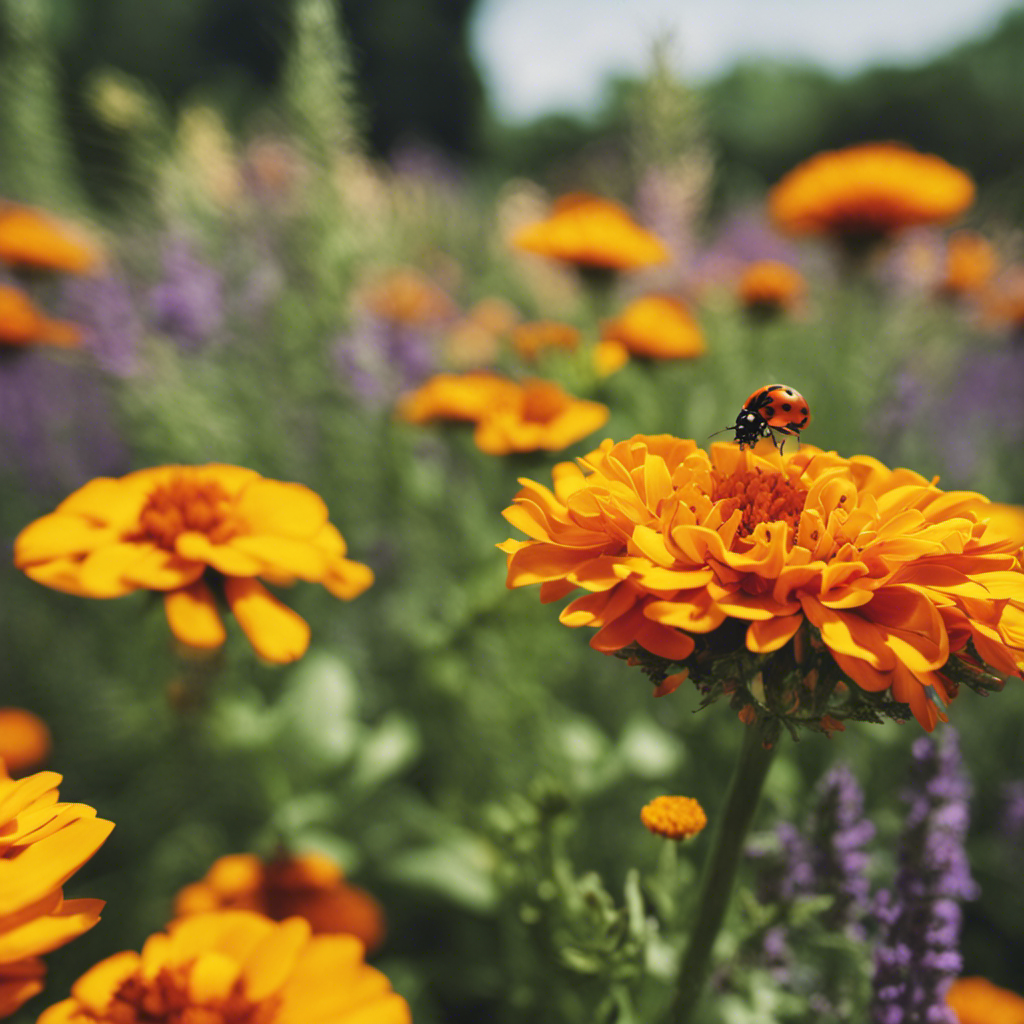
Maintaining a healthy ecosystem in your herb garden is crucial for effective organic pest management. By implementing strategies such as biological control and companion planting, you can enjoy a pest-free herb garden without relying on harmful chemicals.
Here are three techniques to help you achieve this:
-
Biological control: One way to control pests in your herb garden is by introducing beneficial insects like ladybugs and lacewings. These insects prey on common herb garden pests such as aphids and caterpillars, keeping their populations in check. Another option is to use nematodes, microscopic worms that target and control soil-dwelling pests like root-knot nematodes. Additionally, employing beneficial microorganisms like Bacillus thuringiensis (Bt) can effectively combat pests like caterpillars and beetles.
-
Companion planting: Another effective method is companion planting. By interplanting herbs with pest-repellent plants like marigolds and nasturtiums, you can deter insects from infesting your herb garden. Planting herbs with strong scents such as rosemary and sage can also confuse and deter pests. Furthermore, rotating your herb crops regularly disrupts pest life cycles and reduces their population, helping to maintain a healthy and pest-free garden.
Eco-Friendly Pest Control Methods for Herb Plants
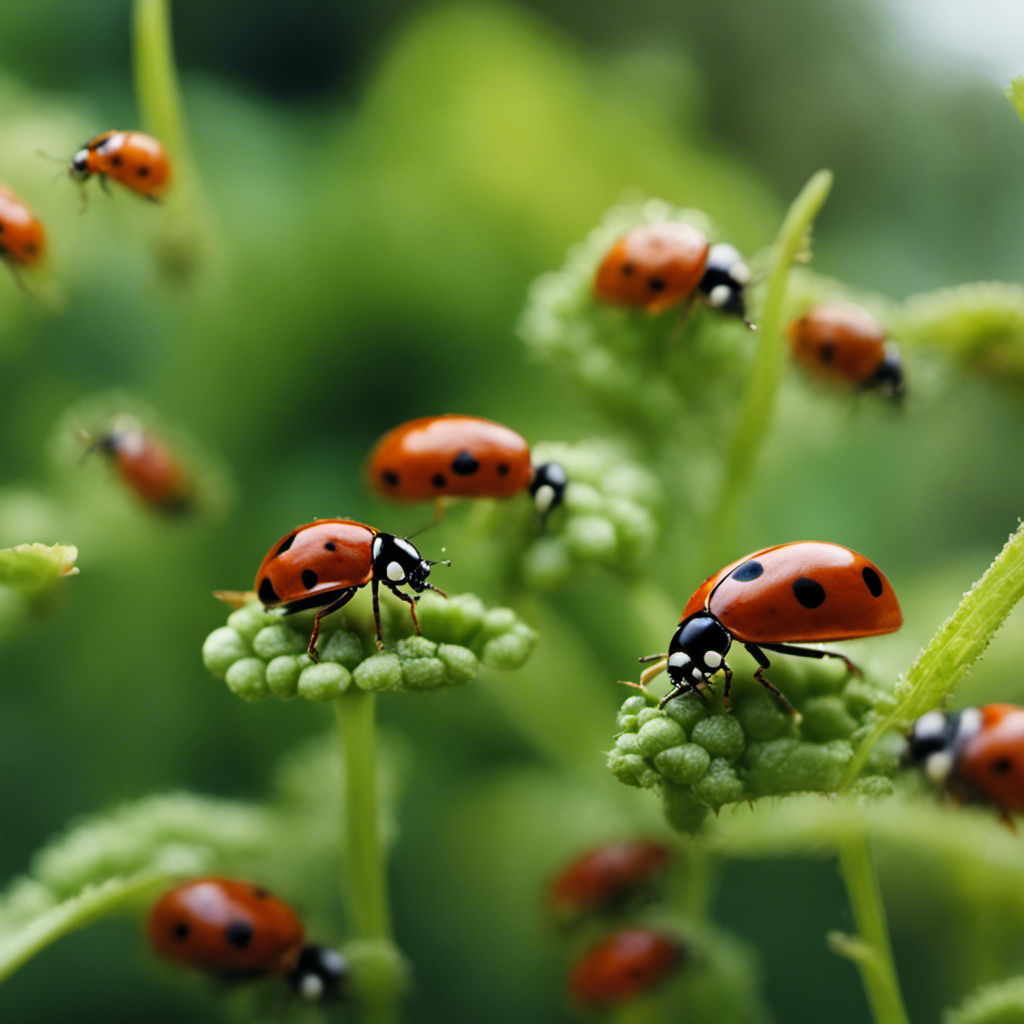
Effective and Environmentally Friendly Pest Control Methods for Herb Plants
To ensure the health of your herb plants while being mindful of the environment, try implementing these simple yet powerful techniques.
One effective strategy is biological control, which involves using beneficial insects or organisms to naturally control pests. Ladybugs, lacewings, and predatory mites are examples of beneficial insects that feed on herb pests such as aphids and spider mites. By introducing these natural predators into your herb garden, you can maintain a balanced pest population.
Another effective method is companion planting, where you grow certain plants together to repel pests or attract beneficial insects. For example, planting marigolds near your herb plants can deter aphids and other pests. Additionally, intercropping herbs with plants like garlic or onions can help repel pests and prevent infestations.
Conclusion
In the vast realm of nature, where pests lurk and threaten the delicate balance of herb plants, we’ve uncovered effective methods to naturally banish them.
By using DIY pest repellents and eco-friendly pest control techniques, we can protect our organic gardens and ensure the thriving of our precious herb plants.
With organic pest management and homemade remedies, we can conquer the challenges that nature presents, creating a harmonious haven for our botanical allies.
